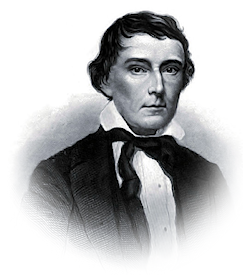Alexander H. Stephens to R. Schleiden.[i]
Richmond, Va., 26th April, ’61.
My Dear Sir: Your very polite and kind note of this day is before me. The feelings and motives by which it was prompted I can readily understand and fully appreciate. For this reason as well as for the deep interest I can but feel in the questions myself, I gave your verbal remarks the considerate hearing mentioned.
In reply to the matter of your note I can but reaffirm to you what I said in conversation upon the same points. No one can more deeply regret the threatening prospect of a general war between the United States and the Confederate States than I do. Such an unfortunate result, if it should occur, cannot be charged to the seeking or desire of the Confederate States government. On the contrary I feel assured in saying that every honourable means has been resorted to by the government to avoid it. Peace not only with the United States, but with all other Powers, is eminently the policy of the Confederate States. But they will have no peace with any which depends on a sacrifice of either their honor or right. Their independence with absolute jurisdiction over their own soil they will maintain at any and every hazzard.
The bombardment of Fort Sumter was not resorted to until every effort at a peaceful adjustment of all matters of controversy with the United States had failed. This the correspondence between their Commissioners and the Secretary of State at Washington as well as the correspondence between General Beauregard and Mr. Secretary Walker—with which you are fully acquainted—will abundantly and clearly show.
As to the future or any terms which our Government might grant or accept with a view to arrest further conflict, I can say nothing. I have no authority from the Confederate States government on the subject. But as a citizen desirous at all times to preserve peace, if it can be done on just and correct principles, I have no hesitancy in saying to you that the course of future events in these particulars will depend to a great extent, in my individual judgment, upon the course to be pursued by the government of the United States. From all evidences and manifestations of their design which have reached me, it seems to be their policy to wage a war for the recapture of former possessions, looking to the ultimate coercion and subjugation of the people of the Confed. States to their power and dominion. With such an object on their part persevered in, no power on earth can arrest or prevent a most bloody conflict.
If, however, such a war is not the object of the government of the U. S.—if they have any idea or disposition for an amicable adjustment of the questions in issue, then a great deal depends upon some early indication of such disposition or willingness and its communication either directly or indirectly in some authoritative way to the government of the Confederate States.
This may be the invitation of other steps leading to a peaceful settlement. But without some such expression or indication of their designs and wishes, in the present posture of affairs I see no prospect of arresting the present tendency of events.
Should such communication as I have indicated be made to the government of the Confed. States, I doubt not it would be responded to in a spirit becoming the intelligence and patriotism of their people as well as the magnitude of the momentous issues now pressing to a crisis. This much I will undertake to say in behalf of the Confed. States, though I have no authority to do it.
In relation to the Proclamation of President Davis inviting offers for commissions in Privateer service mentioned by you in conversation, I will barely add that it was intended as a justifiable and legitimate measure in defensive warfare against the war of aggression so clearly inaugurated by the Proclamation of President Lincoln. This at least was and is my individual view of the subject.
[i] Text derived from a copy kindly furnished by Dr. Frederic Bancroft, of Washington, D. C. Schleiden was then minister of the Bremen Republic near the Government of the United States.
From Annual Report of the American Historical Association for the Year 1911.
Alexander Hamilton Stephens was an American politician who served as the vice president of the Confederate States from 1861 to 1865. After serving in both houses of the Georgia General Assembly, he won election to Congress, taking his seat in 1843. After the Civil War, he returned to Congress in 1873, serving to 1882 when he was elected as the 50th Governor of Georgia, serving there from late 1882 until his death in 1883.
